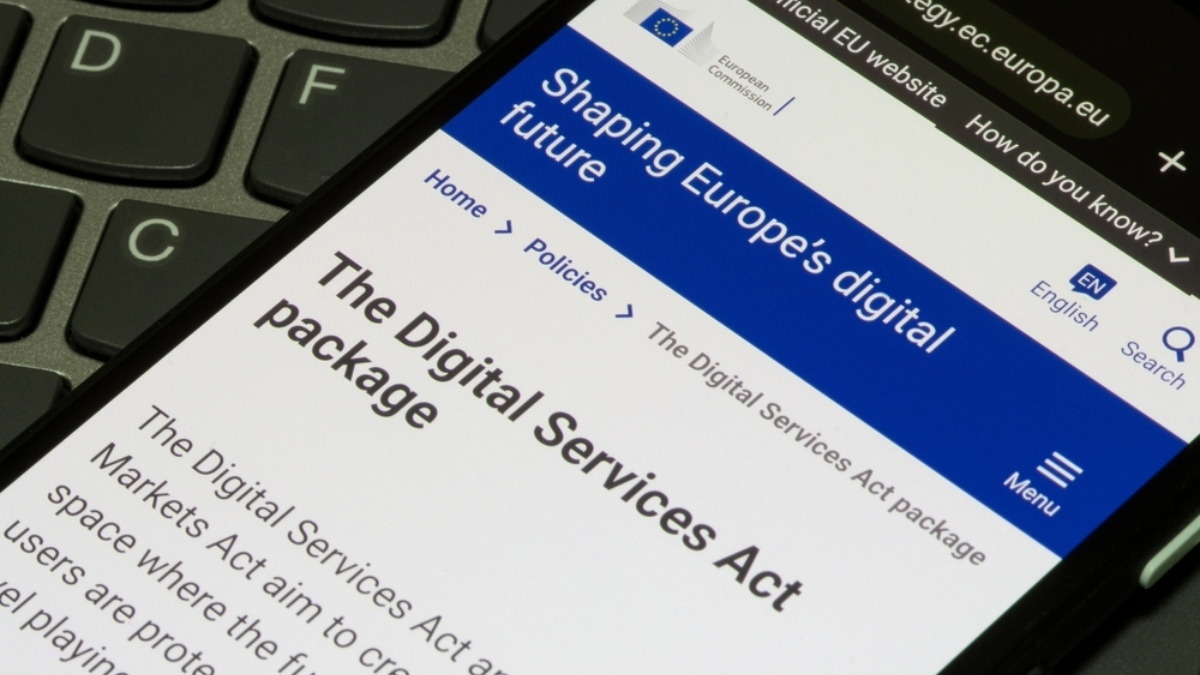DSA Report Card: Key Takeaways from EU’s Internal Market and Consumer Protection Committee Hearing
Ramsha Jahangir / Mar 19, 2025On March 18, the European Parliament’s Internal Market and Consumer Protection Committee (IMCO) hosted a public hearing about the enforcement and implementation of the Digital Services Act (DSA).
The IMCO hearing included representatives from the EU Commission, companies (platforms and non-VLOPs), Member States, and other stakeholders (trusted flaggers, researchers, academics, NGOs, and consumer groups).
Here are the key takeaways from the discussion:
What has the DSA achieved so far?
When asked to share specific examples of DSA’s impact, Prabhat Agarwal, who leads DSA enforcement at the European Commission, said there was “good evidence” in DSA reports that some child protection measures were specifically designed to comply with the act’s regulations. “There are gigantic changes in child protections,” he said, adding that they wouldn’t be in place if not for the DSA.
Commenting on the quality of risk assessment reports, the Commission official also acknowledged that while the reports were quite varied, the tech companies had taken the exercise seriously. “Good news is every company has made a good effort. The methodologies are globally sound,” said Agarwal. He stressed that although improvements were needed in terms of quality and detail, the first round of reports provided a foundation for transparency in how platforms assess and mitigate risks.
US pressure will not hinder DSA enforcement
Responding to a question about US threats on trade tariffs, Agarwal said the Commission was “undeterred and enforcement actions would continue.” He stated that European authorities were engaging with the US and remaining open to dialogue, but “We are steadfast in enforcing our own laws.”Agarwal further maintained that DSA enforcement was expanding, and the Commission was refining its powers and not slowing down.
Some hope for those asking for clearer guidelines
Recognizing the call from many stakeholders, including companies, for greater clarity on DSA compliance, Agarwal said they were working on finalizing guidelines on various topics. He indicated that the guidelines would very likely address age assurance and parental controls, with a public consultation launching soon. He added that the Commission was also looking to offer more clarity on child rights impact assessments as well as recommendations for best practices in platform governance.
Platforms navigating “administrative burden”
Regardless of what tech company owners say about the DSA, Constantin Gissler, the Director General of DOT Europe (which represents leading internet companies in Europe), offered that the law’s horizontal principles-based approach for diverse sectors helped ensure stability in the legal market.
However, Gissler pointed out, companies were receiving requests – often informally – from multiple jurisdictions and national authorities from outside their home country. Companies also found the timelines for risk assessments and audits “overly ambitious. ” He urged the Commission to improve the stakeholder engagement process and address the increasing administrative burden.“We cannot stop reporting anymore. There are 7-8 laws to with reporting requirements for some services,” he said, proposing that companies publish one streamlined report focused on compliance with different EU laws.
“The country of origin principle must be upheld and with it the role of the home country authority,” he said, adding that any expanded role of the Digital Services Board must come with clear rules, accountability, and proper consultation mechanisms.
Concerns about trusted flaggers as “censors” persist
The committee expressed many concerns regarding the role of trusted flaggers and whether their actions could infringe upon freedom of expression. Addressing these concerns, Stamatios Archontis of FactReview (a designated trusted flagger under DSA) said trusted flaggers were not reporting political speech or opinions. “Trusted flagging is specifically about locating potentially illegal content, analyzing what the content is, and producing reports about how this can be escalated via national DSCs or the Commission,” he said.
Not enough complaints
“There are a lot of firsts in the DSA,” said John Evans, speaking on behalf of Ireland's Digital Services Coordinator and media regulator, Coimisiún na Meán. The committee addressed challenges in the complaint mechanism, such as the low number of complaints, and the lack of feedback on received complaints. Acknowledging these challenges, Evan stated they were streamlining the process, attributed low complaint numbers to reporting fatigue, and urged the committee to support citizens in submitting more complaints to platforms.
Authors

